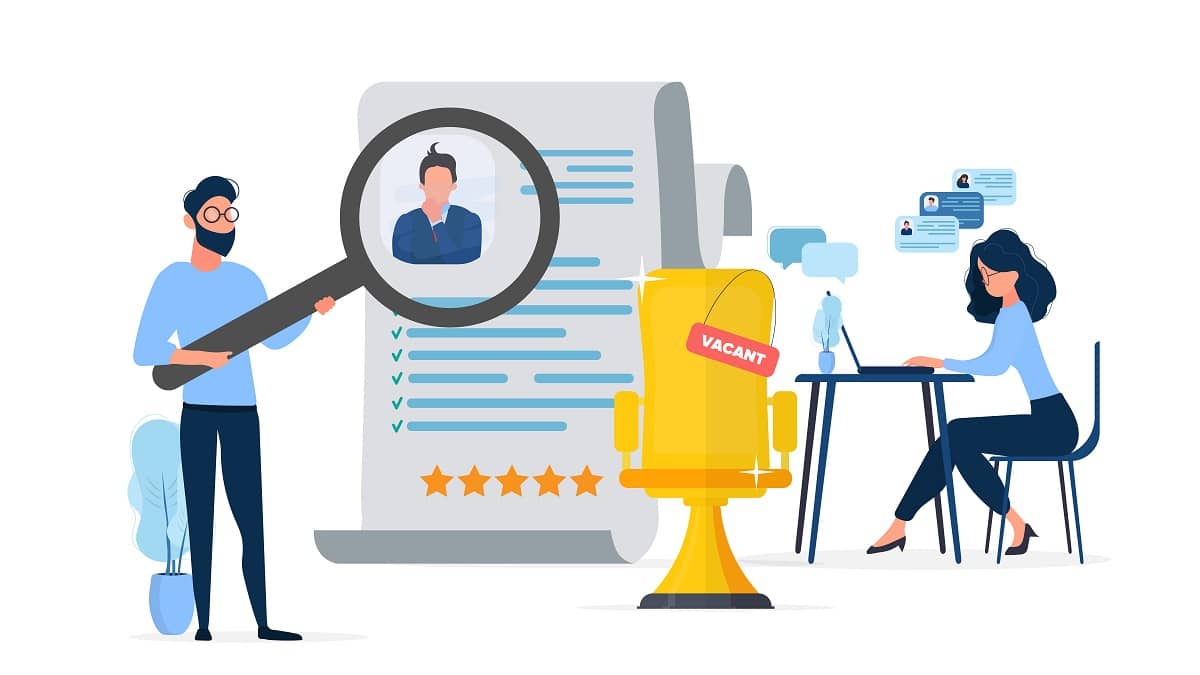Remote Staffing
Don’t Miss These 6 Java Developer Skills While Hiring in 2023
In the ever-evolving world of technology, Java continues to be a popular and widely used...
Start-ups on the lookout for offshore developers aren’t willing to cut corners. They only want the best, the crème de la crème of developers – no compromises. These start-ups maybe a little short on budget, but that doesn’t stop them from hiring elite offshore developers. They might as well hire the best now than regret later – with time and more money.
So, anytime they hunt for offshore developers, they expect these developers to pack essential skills. Hiring expert developers who possess these varied repertoires of vital skills allows for tighter and more efficient project closure. Any offshore talent with these core skills will be far more competent, complete, and effective at fulfilling the requirements. So, what are these skills? Let’s take a look.

Given below are the top six skills that startups can’t afford to ignore when they hire remote developers:
1. Sound Technical Expertise: Remote developers undoubtedly need the absolute best understanding of all the modern technologies and other technical skills to integrate them. They’d need to conduct data analysis, quality checks and have an expert level familiarity with its maintenance and archiving. To be honest, this isn’t even one of those excusable skills. You just got to have it!
The ability of remote developers to use their mathematical knowledge and an exhaustive analysis process to solve problems through the code makes them more valuable. Remote developers who don’t bring such skills to the table are unlikely to deliver on your project guidelines. Here are all the technical skills that offshore developers need:
• Data Structures and Algorithms: Have an astute understanding of problem-solving and coding skills to organize and use data correctly.
• Programming languages: From JavaScript to PHP, Python, C, C#, C++, and many more, remote developers need to be on their toes to learn all the emerging modern technologies.
• Coding hacks: Developers may also want to leverage existing codes to save time and cost. Find a way to utilize old codes better. Plus, use clean and concise coding practices, wherein the code is easy to maintain, understandable, and reduces the build size.
• Databases: Store records, create, insert, delete, update, and perform other functions in a database with ease. This would revolve mainly around Oracle, PostgreSQL, MongoDB, etc.
• Operating System: Developers would also need to know how to detect and address issues with memory usage, conflicts, communicating with other machines, running programs slowly, blocking problems, and other requirements.
• Cloud platforms: Configuring or developing anything for a cloud platform, be it AWS or Microsoft Azure, requires a holistic understanding of its framework, server management, microservices, API programming, Systems architecture and design, and more.
• Cross-platform understanding: Remote developers must know how to write code once and make it work seamlessly across multiple platforms. This would require an intricate knowledge of each system – Android and iOS in smartphones and Windows and Mac in Desktops.
• Git Repository Structure: Remote developers must know about the working directory, staging area, local repository, central repository, and all the relevant commands inside-out.
• Encryption and Cryptography: Remote developers must also have an in-depth understanding of how to secure their code with encryption algorithms, authentication, and cryptography methods. Plus, know all about public keys and private keys and RSA or ECDSA algorithm.
• Be well aware about Testing standards: Writing a piece of code is not enough. You need to ensure that the written code is efficient and free of bugs (Debugging). Learn to perform unit testing, integration testing, system testing, load testing, stress testing, and follow proper code hygiene.
• Know all about Networking: All web-based applications and the digital transformation going around the cloud would require you to have enough understanding of the fundamentals of networking for remote developers to develop any application.
• Integrated Development Environment (IDE): IDEs help you write, modify, compile, run, and debug the code. Every offshore developer should know how to use development environments to bring their code to life. This could be Visual Studio, NetBeans, PyCharm, etc.
• Text editors and Microsoft Suite: Remote developers also need to have an out-an-out understanding of text editors like Atom, Notepad++, and TextMate. Additionally, they’d need to have a decent familiarity with Word, Excel, and PowerPoint.
2. Proper Project Management: Remote developers must know how to prioritize tasks and chalk out an estimate on how long it would take to complete each task, from beta to deployment. Hence, project management would also come to include time and task management. They need to be agile and occasionally accelerate their working process to deliver maximum value on time.
An ongoing project may require them to learn new technologies, new libraries, tools, project management frameworks, techniques, and so on. Adapting and then implementing them will contribute to how soon you can achieve desired outcomes for your clients. Either way, remote developers would need to be on their toes and be prepared to handle worst-case scenarios.
• Conduct daily scrum meetings to recap and track progress with the team
• Ensure every member of the team has complete visibility of what others are up to
• Plan out sprints and allocate different tasks for the day
• Use proper project management practices to complete, demo, and deliver each milestone
3. Omnichannel, On-time, and Effective Communication: Software developers need excellent communication skills. How else would you keep the client in the loop? As a remote developer, these skills are a must-have. Have a good understanding of the client’s culture, language, and time zone. This ensures transparency and gives them complete visibility into how the project progresses.
Proactively update the client with all the latest developments in the project to ensure they are in the know-how and can prepare accordingly on their end. Keep them aware of every aspect and milestone completion. Furthermore, give them the liberty to reach out to you on any channel, such as collaboration tools, mail, phone, instant messenger apps, etc., to discuss anything.
• Be available during the pre-decided hours or as often as possible
• Be flexible in switching between various apps and tools
• Be meaningful, considerate, and matter of fact when conveying your point
4. Robust understanding of the industry and business type: Programmers need not just know the technical skills. It’d help to have rich-domain and business-specific expertise to qualify and stand out from your peers in this day and age. These differentiators help to make remote developers more appealing to the client and a cut above the rest.
In fact, this opens up a two-way communication line where developers can chip in and recommend specifics, capture nuances, and take up an advisory role (consultants) on the development project. Knowing that you have already undertaken and fulfilled a task along similar lines gives them more confidence in partnering with you.
5. A firm idea of Software Development Life Cycle (SDLC): Remote developers also need to have sound knowledge about the life cycle of a product to ensure proper flow and correctness. The planning within the SDLC would include requirement gathering, feasibility analysis, design, coding & implementation, testing, deployment, and maintenance.
SDLC gives developers a clear process and a framework during a project. This allows them to detect and address flaws early on. The systematic steps chart a roadmap for the developers and help them to course-correct midway if anything goes wrong. Plus, learn to select the best methodology to streamline the project and keep it as cost-efficient as possible.
6. Responsible and ethical developers only: The idea of having to file a patent to protect your confidential data like intellectual property (IP) sounds like a bit of a stretch, but this is what it has come down to. Remote developers who hold confidential information about the project can easily pass it down or leave it unattended, compromising your precious concept.
Your unique ideas are not to be sold or shared; it’s that simple. Signing a Non-Disclosure Agreement (NDA) doesn’t cut it, but that is the least you can do. Suppose you have a remote team working on your application or website that contains pivotal customer data, business data, or other sensitive information; it is imperative that they understand the agreement and abide by it.
• Preferably hire remote developers with a solid public profile and portfolio
• Get a one-on-one session with each member to get to know them more
• Accept written/video guarantees from each member about non-disclosure to 3rd parties
Startups that are cash-strapped and risk-sensitive can’t afford to have their projects delayed and abandoned. In this scenario, the inherent abilities of remote developers will dictate the course and closure of the project. Having expert, trustworthy, and reliable remote developers can change the way projects are initiated, managed, and executed.
Hiring the best offshore developers will, however, be a struggle. Remote developers are a dime a dozen, but only a few noteworthy developers can deliver on par with your expectations. A company like ours houses certified and professional offshore developers who will sync with your needs and help bring your vision to life. Get in touch to hire one now!

In the ever-evolving world of technology, Java continues to be a popular and widely used...

Remote work has been around for a while, but the COVID-19 pandemic accelerated its adoption....

Introduction: Case 1: In 2016, Ravi was a college dropout, and his decision to drop...

While degree-based hiring has been the traditional approach, the latest trend in IT recruitment is...

As per Glassdoor Data Engineering ranked in the top 15 of “50 Best Jobs in...

Global advances in technology are increasing the demand for skilled IT professionals at an exponential...

As the trend towards a remote working setup continues to grow, managing such teams has...

Outsourcing IT services has become increasingly popular among companies and business owners looking to expand...

According to Statista, the global mobile app revenue was estimated to be $581.9 billion in...
Interesting stuff to read. Keep it up.